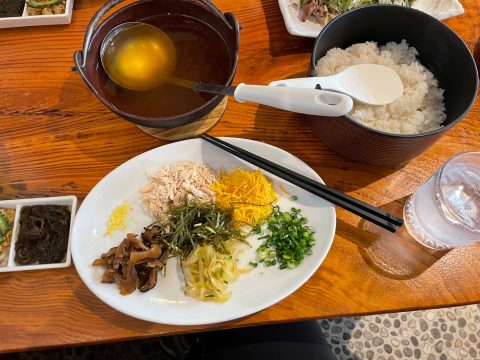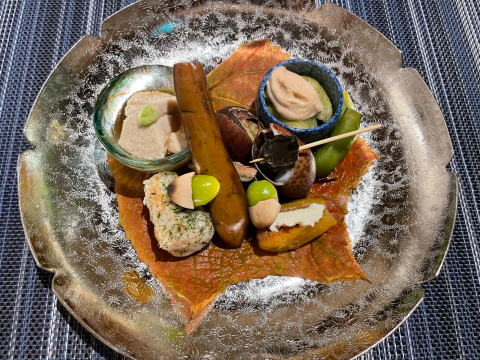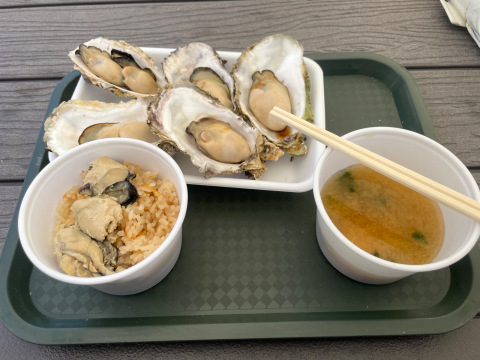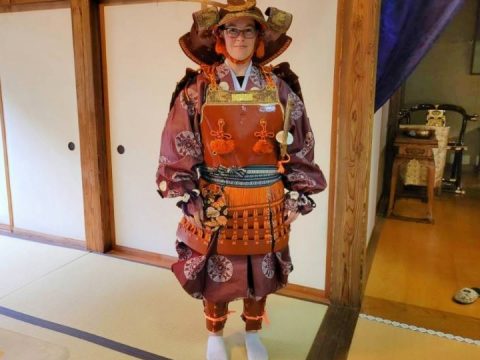Job hunting in Japan
WORK’IN JAPAN
30.10.2023
Job hunting. At some point in our lives, everyone does it. But for the ones (us from other countries) that decide to do it in Japan, it can be an experience full of different emotions: fear, uncertainty, hope, illusion and lots of nerves. But if you just keep going and the luck is also with you, you will end up feeling joy and happiness because… you got it!

There are some aspects of job hunting in Japan that are different from most places, so let’s take a look at them!
Job hunting at university?
Yes, it is a reality. University students in their senior year start looking for jobs. They mainly focus on it, so that once they finish university, they can then start working. In most countries, once university students graduate is when they start looking for jobs, not before.

Recruitment agencies
They may or may not be popular in your country, but what we are sure of is that they have a strong presence in Japan. It consists of registering with these agencies, where an agent conducts interviews with you to learn about your work and student history, what type of job you are looking for and your expectations. Based on all this, they will send you job offers to which you can apply according to your interest. The most interesting thing about this system is that it saves you a lot of time and they are free of charge.

Resume
The Japanese resume format is totally different from anything you’ve ever seen. First, the presence of photography is something that is very controversial in other countries, so in general, it is not used, but in Japan it is. In addition, there is always a large box in which you should write about qualities, motivation to apply, or skills that you consider important for your job performance.

Interviews
They used to be face-to-face, but nowadays most of them are online. Regarding the number of interviews, it depends, but they are usually between one to three interviews. Also, the questions asked in most interviews in Japan tend to be somewhat different, such as what you consider to be your strong point, or what is one of your flaws. In short, they go beyond the work context.

A message from me
It is a process that usually takes some time, in which you have to be very patient and in which you also learn a lot. If you are also looking for a job in Japan, lots of cheers and good luck!
頑張りましょう!

Carmen Alvarez
Carmen grew up in a city in southern Spain. After graduating from university, she decided to move to Tokyo to study Japanese. She enjoys walking the streets of Japan, discovering new places and trying different Japanese dishes.
Read previous articles by the writer
Read latest articles
KEYWORDS
- # PICKPICK
- # Resume
- # alcohol
- # Rice
- # Soup
- # winter food
- # Fast Food
- # seafood
- # spicy foods
- # raw food
- # fermented food
- # Transportation
- # MEAT
- # Edo culture
- # suits
- # clothing
- # drink
- # fish
- # seasoning
- # Japanese New Years Foods
- # Toshikoshi soba
- # Osechi Ryori
- # Ozoni
- # Christmas
- # Japanese fusion pasta
- # Wafu Pasta
- # Japanese Hot Pot
- # なべ
- # 鍋
- # Miyazaki
- # Chicken Nanban
- # Karamen
- # Autumn Wagashi
- # Mushi-yokan
- # Imo-yokan
- # Japanese Autumn Fruits
- # Autumn
- # Vending Machine
- # fall
- # dango
- # Chestnut rice
- # saury
- # Mushroom
- # Rice vinegar
- # Japanese condiments
- # 調味料
- # Sake
- # Mirin
- # Soy sauce
- # Japanese Noodles
- # Udon
- # Ramen
- # Yakisoba
- # Soba
- # Japanese Seaweed
- # 海藻
- # かいそう
- # Payslip
- # Training
- # Japanese summer foods
- # 和菓子
- # Wagashi
- # ryokucha
- # 夏
- # 飲み物
- # Ramune
- # ラムネ
- # Pokari Sweat
- # ポカリスエット
- # Calpis
- # カルピス
- # Mugicha
- # ume
- # 梅
- # うめ
- # umeshu
- # job hunting
- # tofu
- # Recruitment in Japan
- # miso
- # Japanese cuisine
- # Yellowtail and bonito
- # Children’s Day
- # Kashiwa Mochi
- # Chimaki
- # fruits
- # Kusamochi
- # Types of Agriculture in Japan
- # bread
- # パン
- # パン屋さん
- # japanese bread
- # shokupan
- # meal blead
- # anko bread
- # 桜
- # さくら
- # cherry blossom
- # visa
- # hanami
- # omotenashi
- # sakura
- # おもてなし
- # Japanese hospitality
- # oshibori
- # wet hand towel
- # hand towel
- # restaurant
- # Commuting in Japan
- # Women-only cars
- # Exit gate
- # japanese train
- # train
- # valentine
- # Japanese sweets
- # 朝食
- # Japanese Breakfast
- # Breakfast
- # Japanese
- # 日本
- # healthy
- # persimmons
- # hoshigaki
- # HR
- # work in Japan
- # jinji ido
- # corporate systems
- # Japanese work culture
- # bento
- # ekiben
- # shinkansen
- # omiyage
- # train station
- # Japanese culture
- # work culture
- # mentaiko
- # umeboshi
- # Japanese snacks
- # potato chips
- # Japanese potato chips
- # Japanese writing
- # seaweed
- # konbu
- # ocean foods
- # shio konbu
- # dashi
- # miso soup
- # food processing
- # pear
- # nashi
- # sweet potato
- # japanese sweet potato
- # stingray
- # satsuma imo
- # food value chain
- # homecooking
- # agriculture
- # Japanese homecooking
- # farming
- # nikujaga
- # shojin ryori
- # meat and potatoes
- # traditional foods
- # comfort food
- # buddhist food
- # manufacturing
- # factory
- # eihire
- # vegetarian
- # food and beverage
- # izakaya
- # yatai
- # japanese festival
- # taiyaki
- # matsuri
- # summer
- # Ikayaki
- # smart agriculture
- # shaved ice
- # kakigori
- # かき氷
- # summer dessert
- # Japan
- # Japanese foods
- # dessert
- # fruit
- # matcha
- # icecream
- # Pikcup
- # Pikc up
- # Pcikup
- # skilled labor visa
- # working visa japan
- # Dineer Table in Japan
- # Japanese manner
- # Japanese food
- # Japanese Table Manner
- # Chopsticks
- # Japanese traffic signs
- # traffic information
- # road rules in Japan
- # chocolate
- # green tea
- # Osaka
- # Work Japan
- # Japanese company
- # ikura
- # sushi
- # nigiri
- # wasabi
- # PCIK
- # PICK UP
- # PICK
- # PICKUP







